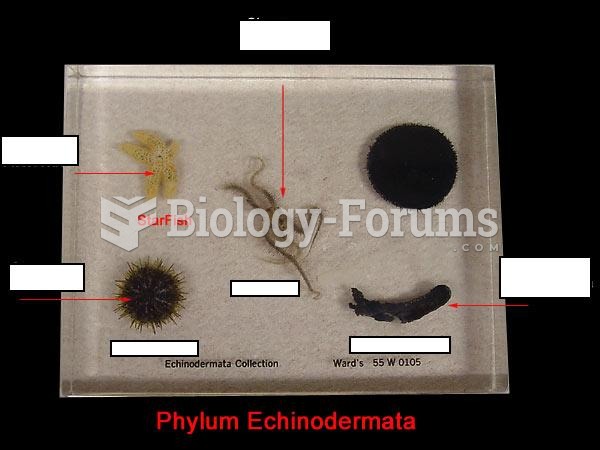|
|
|
The first oncogene was discovered in 1970 and was termed SRC (pronounced "SARK").
Oxytocin is recommended only for pregnancies that have a medical reason for inducing labor (such as eclampsia) and is not recommended for elective procedures or for making the birthing process more convenient.
It is important to read food labels and choose foods with low cholesterol and saturated trans fat. You should limit saturated fat to no higher than 6% of daily calories.
Pope Sylvester II tried to introduce Arabic numbers into Europe between the years 999 and 1003, but their use did not catch on for a few more centuries, and Roman numerals continued to be the primary number system.
Stroke kills people from all ethnic backgrounds, but the people at highest risk for fatal strokes are: black men, black women, Asian men, white men, and white women.
 A strike by 800 women shoemakers in Lynn, Massachusetts, in 1860. In 1851 a Lynn shoemaker had adapt
A strike by 800 women shoemakers in Lynn, Massachusetts, in 1860. In 1851 a Lynn shoemaker had adapt
 A mother dies, a father loses his leg—such calamities shattered poor urban families. Orphaned street
A mother dies, a father loses his leg—such calamities shattered poor urban families. Orphaned street





